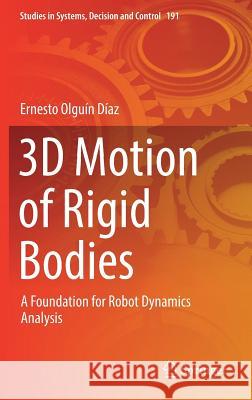3D Motion of Rigid Bodies: A Foundation for Robot Dynamics Analysis » książka
topmenu
3D Motion of Rigid Bodies: A Foundation for Robot Dynamics Analysis
ISBN-13: 9783030042745 / Angielski / Twarda / 2019 / 474 str.
Kategorie:
Kategorie BISAC:
Wydawca:
Springer
Seria wydawnicza:
Język:
Angielski
ISBN-13:
9783030042745
Rok wydania:
2019
Wydanie:
2019
Ilość stron:
474
Waga:
0.86 kg
Wymiary:
23.39 x 15.6 x 2.69
Oprawa:
Twarda
Wolumenów:
01
Dodatkowe informacje:
Wydanie ilustrowane











